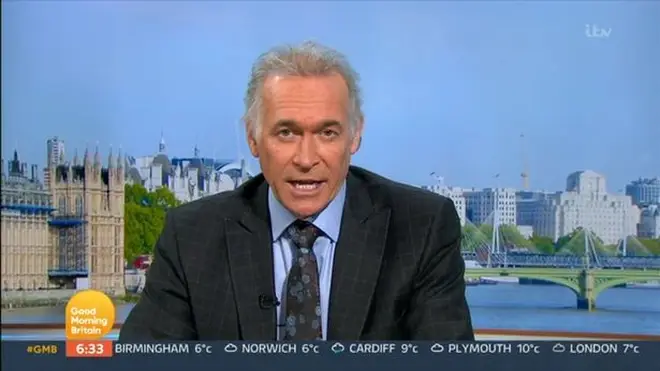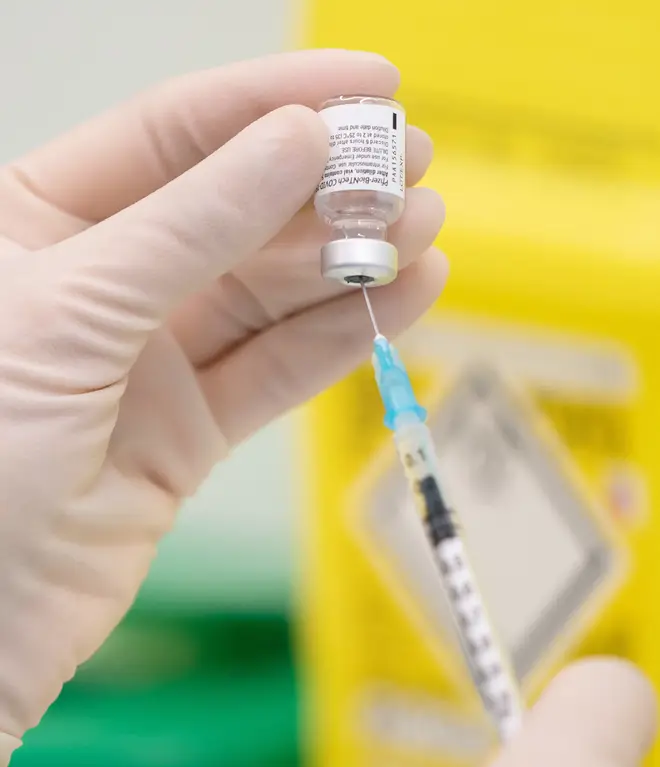Dr Hilary reassures public over coronavirus vaccine allergic reactions
10 December 2020, 08:29 | Updated: 10 December 2020, 08:36

Dr Hilary reassures viewers over rare allergic reaction to Covid-19 vaccine
It was announced yesterday that two NHS workers had suffered allergic reactions to the Pfizer Covid-19 vaccine.
Dr Hilary has reassured the public over the concerns about the allergic reactions to the coronavirus vaccine.
Speaking on Good Morning Britain today, he told viewers that these reactions are extremely rare and only seen in those with severe allergies.
Read more: Asda to close all stores on Boxing Day to give staff extra day off
He also reiterated that both NHS workers who had reactions yesterday have recovered fully now.
Speaking to Ben Shephard and Charlotte Hawkins, Dr Hilary said: "Remember that these two people are completely fine now - they've totally recovered now. They had an anaphylactoid reaction not an anaphylaxis reaction. But they had a rash, they had a reaction.

"But we see this in the flu vaccine as well with very, very few people and people who are genuinely allergic to eggs are advised not to have flu vaccine. But that will be the case with the Covid vaccine that anyone who's had an anaphylactic reactions or anaphylactoid reactions to foods or medicines or vaccines before should not have this Pfizer vaccine.
"That's a very tiny minority of people - remember that I think that 9,000 jabs were given on the first day and there were two of a slight reaction like this.
"So I don't think we need to work this up into anything we need to worry about too much."
Dr Hilary did add that he expects further precautions will now be taken.
Read more: Restaurant pleads with diners after 22 no-shows in one evening
He added: "However, I think that when vaccines are delivered now, ongoing in hospitals or clinics or conference centres or by GPs, they will ask people to wait 15 minutes to see that they haven't had a reaction and resuscitation equipment handy, like they normally do."
His words come after the UK's drug regulator said that anyone with a history of 'significant' allergic reactions to food, medicine or vaccines should not currently receive the vaccine.
It is understood that this applies to anyone who carries an adrenaline auto-injector for their allergy.

Dr June Raine, head of the Medicines and Healthcare products Regulatory Agency (MHRA) said, according to Evening Standard: "Any person with a history of anaphylaxis to a vaccine, medicine or food should not receive the Pfizer BioNTech vaccine. A second dose should not be given to anyone who has experienced anaphylaxis following administration of the first dose of this vaccine.
"Anaphylaxis is a known, although very rare, side effect with any vaccine. Most people will not get anaphylaxis and the benefits in protecting people against Covid-19 outweigh the risks."
NOW READ:
Schools in England allowed to finish for Christmas early 'so teachers can have proper break'






















